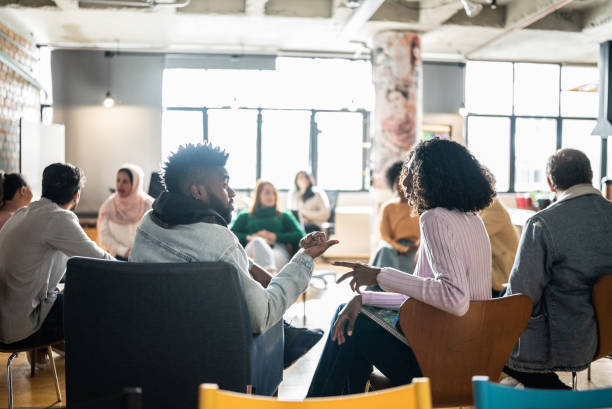
雅思口语part3话题:回忆和经历Memories and experiences
我们探讨雅思口语考试第 3 部分的“回忆和经历”主题。在本节中,考官将向您提出与记忆和个人经历等更广泛主题相关的更深入的问题。以下是一些常见问题以及如何回答这些问题:
Question 1: How do our memories shape our identity and personality?
Introduction: Start by acknowledging the significant influence of memories on identity and personality: "Our memories play a fundamental role in shaping who we are and how we perceive the world around us."
Discuss personal experiences: "Firstly, our memories are formed through personal experiences, both positive and negative, which contribute to our understanding of ourselves and others."
Mention life lessons: "Secondly, memories of challenges and achievements provide valuable life lessons and contribute to the development of our character and resilience."
Talk about nostalgia: "Moreover, nostalgic memories of the past can evoke strong emotions and help us appreciate our roots and cultural identity."
Question 2: How do people's perceptions of past experiences change over time?
Introduction: Present the idea that people's perceptions of past experiences are subject to change: "As time passes, our perceptions of past experiences can evolve and take on new meanings."
Discuss emotional distance: "Firstly, emotional distance from a past experience can alter our initial feelings and reactions, allowing us to view it from a more objective perspective."
Mention personal growth: "Secondly, personal growth and maturity can lead to a reinterpretation of past experiences, as we may discover new insights and lessons in hindsight."
Talk about cultural context: "Moreover, changes in cultural context and societal values can influence how we perceive past experiences, especially when considering social norms and attitudes."
Question 3: How do people share and preserve their memorable experiences in today's digital age?
Introduction: Introduce the ways people share and preserve memorable experiences in the digital age: "In today's digital era, technology has transformed how we share and preserve our memorable experiences."
Discuss social media: "Firstly, social media platforms allow people to instantly share photos, videos, and updates about their experiences with friends and family, creating a virtual archive of memories."
Mention digital journals: "Secondly, digital journals or blogs provide an online platform for individuals to document and reflect on their experiences, ensuring they are preserved for the future."
Talk about cloud storage: "Moreover, cloud storage services enable people to store vast amounts of data, including memorable moments, securely and access them from anywhere at any time."
Question 4: What role do cultural experiences play in broadening people's perspectives?
Introduction: Present the significance of cultural experiences in expanding perspectives: "Cultural experiences are instrumental in broadening people's horizons and fostering understanding and empathy."
Discuss exposure to diversity: "Firstly, cultural experiences expose individuals to diverse customs, traditions, and beliefs, encouraging open-mindedness and a more inclusive outlook."
Mention empathy and connection: "Secondly, engaging with different cultures and their unique histories can build empathy and connection, helping people relate to the experiences of others from different backgrounds."
Talk about personal growth: "Moreover, cultural experiences contribute to personal growth, as they challenge preconceived notions and encourage a more informed and nuanced perspective of the world."
Question 5: How do people benefit from participating in adventure or challenging activities?
Introduction: Introduce the benefits of engaging in adventure or challenging activities: "Participating in adventure or challenging activities can have numerous positive effects on individuals' physical and mental well-being."
Discuss personal growth: "Firstly, taking on challenges and stepping outside of one's comfort zone can lead to personal growth and a sense of achievement, boosting self-confidence."
Mention stress relief: "Secondly, adventure activities often involve physical exertion and adrenaline rush, which can serve as excellent stress-relief and improve overall mood."
Talk about bonding experiences: "Moreover, engaging in adventure activities with others can foster camaraderie and build stronger social connections through shared experiences."
Question 6: How do childhood memories shape a person's personality and behavior in adulthood?
Introduction: Start by acknowledging the significant influence of childhood memories on a person's personality and behavior: "Childhood memories have a profound impact on shaping a person's personality and behavior in adulthood."
Discuss formative experiences: "Firstly, early childhood experiences, such as interactions with family members and caregivers, lay the foundation for a person's emotional development and interpersonal relationships later in life."
Mention learned behaviors: "Secondly, behaviors learned during childhood, such as coping mechanisms or problem-solving skills, can carry over into adulthood and influence how individuals respond to various situations."
Talk about self-identity: "Moreover, childhood memories contribute to the formation of a person's self-identity, influencing their values, beliefs, and aspirations in adulthood."
Question 7: How do people's memories of historical events impact society and collective identity?
Introduction: Present the idea that memories of historical events have a significant impact on society and collective identity: "Memories of historical events shape the way societies perceive their past, present, and future, impacting their collective identity."
Discuss cultural memory: "Firstly, memories of historical events become part of a society's cultural memory, influencing narratives and shaping the collective understanding of the nation's history."
Mention commemoration and remembrance: "Secondly, societies often commemorate historical events through memorials, ceremonies, and educational programs, reinforcing the significance of these events in shaping national identity."
Talk about lessons learned: "Moreover, reflecting on historical memories can offer valuable lessons for the future, encouraging societies to learn from past mistakes and work towards a more inclusive and harmonious future."
Question 8: How can people enhance their ability to recall and retain important memories?
Introduction: Introduce the ways people can improve their memory retention: "Enhancing memory recall and retention is a skill that can be developed through various techniques and practices."
Discuss mnemonic devices: "Firstly, using mnemonic devices, such as acronyms or visualization techniques, can help people retain information more effectively."
Mention regular practice: "Secondly, regular practice and repetition of information can strengthen memory pathways and improve the ability to recall important details."
Talk about a healthy lifestyle: "Moreover, maintaining a healthy lifestyle, including regular exercise, a balanced diet, and adequate sleep, can support brain health and cognitive function."
Question 9: How do people's experiences with travel and cultural immersion impact their perspective of the world?
Introduction: Present the impact of travel and cultural immersion on people's perspectives: "Traveling and cultural immersion offer transformative experiences that can broaden individuals' perspectives of the world."
Discuss exposure to diversity: "Firstly, traveling to different countries and immersing oneself in diverse cultures exposes people to different ways of life, beliefs, and traditions, fostering a deeper understanding and appreciation of cultural diversity."
Mention empathy and tolerance: "Secondly, interacting with people from different cultural backgrounds can cultivate empathy and tolerance, encouraging individuals to view the world from multiple viewpoints."
Talk about personal growth: "Moreover, travel experiences often challenge preconceptions and encourage personal growth, as individuals confront new situations and adapt to unfamiliar environments."
Question 10: How do people's attitudes towards technology and the digital age impact their experiences and memories?
Introduction: Present the influence of attitudes towards technology on experiences and memories: "People's attitudes towards technology and the digital age can significantly impact the way they perceive and remember their experiences."
Discuss documentation: "Firstly, the prevalence of digital devices has made it easier for people to document and capture their experiences through photos, videos, and social media posts, creating a digital record of memories."
Mention distraction: "Secondly, the constant use of digital devices can sometimes lead to distraction and reduced focus on the present moment, potentially affecting the quality of memory encoding."
Talk about virtual experiences: "Moreover, technology allows people to have virtual experiences, which may impact how they remember events compared to physical, real-life experiences."
请记住,在雅思口语考试中,提供详细且结构良好的答案,并辅以具体示例和相关信息。使用各种词汇和语法结构来有效地展示您的语言能力。与朋友或在镜子前练习回答这些问题,以提高您的流利度和信心。祝你准备顺利!






















有话要说:
Someone help me please https://ieltsonlinetests.com/vi/sot/result/speaking-practice-test-1-231622
https://ieltsonlinetests.com/vi/wot/result/writing-practice-test-1-477270
feedback pls UwU
I think at least your band is about 6.0.
https://ieltsonlinetests.com/vi/wot/result/writing-practice-test-1-459363
help me plss
https://ieltsonlinetests.com/vi/sot/result/speaking-practice-test-1-209463
Please give me some feedback
https://ieltsonlinetests.com/vi/wot/result/writing-practice-test-1-459363
help me, please
giọng hay + phát âm chuẩn, ngữ pháp gần như ok
https://ieltsonlinetests.com/vi/wot/result/writing-practice-test-1-436428
helps me plz
bủh bủh lmao
ng ae vn